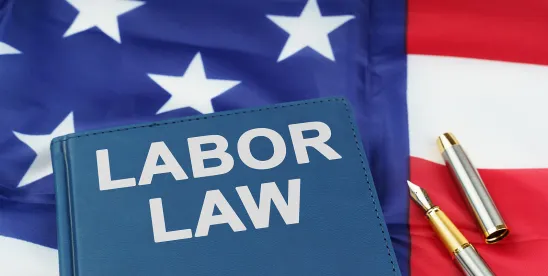While the National Labor Relations Board (“NLRB” or the “Board”) does not have a quorum, a pair of June 13, 2025 decisions by federal courts of appeal highlight key labor law issues under the National Labor Relations Act (“NLRA” or “Act”).
- In Grove v. NLRB, the D.C. Circuit vacated the Board’s finding that an employer unlawfully declared impasse after protracted pension bargaining, clarifying the legal standard for impasse determinations.
- In Welch v. International Association of Sheet Metal, Air, Rail & Transportation Workers, Local 100, the Fourth Circuit affirmed that a union’s organizing tactics—including public communications and litigation support—remained protected under the NLRA and did not constitute unlawful secondary activity or actionable defamation.
These opinions reinforce that impasse findings must be based on objective evidence and that peaceful union advocacy is generally lawful under federal labor law.
D.C. Circuit Slams NLRB’s “Irrational” Impasse Analysis
In Grove v. NLRB, No. 23-1164 (D.C. Cir. June 13, 2025), the D.C. Circuit addressed whether an employer lawfully declared impasse after years of bargaining over pension contributions. The parties engaged in extensive negotiations, including numerous sessions and a lengthy strike, but remained deadlocked over the pension issue. When both sides confirmed their positions were non-negotiable, the employer declared impasse. The Board found the employer had not bargained in good faith and could not declare impasse; however, the D.C. Circuit rejected the Board’s conclusion, finding that the Board’s analysis lacked substantial evidence and failed to apply the correct legal standard for impasse under labor law.
- Objective Evidence Controls Impasse. The D.C. Circuit emphasized that a lengthy history of deadlocked bargaining and strikes is strong evidence of impasse. The Board must consider the full bargaining record when making impasse determinations.
- Union Denials Are Not Dispositive. The court clarified that a union’s subjective denial of impasse does not override objective evidence of deadlock. Labor law requires an analysis of bargaining conduct—not just party statements.
- Timing of Information Requests. Last-minute information requests by a union—which the court termed an “obvious ploy” because there was no clear link to renewed bargaining movement—did not prevent a finding of impasse.
The court did enforce one narrow part of the Board’s order finding that the employer violated the Act by laying off two union employees that served as election observers.
Fourth Circuit Blesses Union’s Aggressive Organizing Campaign
On the same day, in Welch v. International Associate of Sheet Metal, Air, Rail & Transportation Workers, Local 100, No. 24-2067 (4th Cir. June 13, 2025), the Fourth Circuit addressed the boundaries of lawful union advocacy under federal labor law. The court considered whether union activities—such as distributing leaflets, sending letters to customers, publicizing allegations, and supporting litigation—constituted unlawful secondary activity or defamation under the NLRA and state law. The court held that these actions, absent violence or picketing, were protected forms of peaceful, persuasive advocacy under federal labor law.
- Protected Union Advocacy. The court reaffirmed that under Supreme Court precedent in Edward J. DeBartolo Corp. v. Fla. Gulf Coast Bldg. & Constr. Trades Council, 485 U.S. 568 (1988), peaceful union advocacy—including letters, leaflets, and litigation—is not considered “threatening, coercing, or restraining” under Section 8(b)(4) of the NLRA unless accompanied by violence or picketing.
- Preemption of Defamation Claims. The court applied Supreme Court precedent in Linn v. United Plant Guard Workers of Am., 383 U.S. 53 (1966), which held that state-law defamation claims arising from labor disputes are preempted unless the plaintiff can show actual malice and falsity, accompanied by damages. The union’s communications accurately described pending accusations and investigations, and the complaint failed to allege actionable falsehoods or malice as required by federal labor law.
Takeaways
These decisions provide guidance on the facts that give rise to a finding of lawful impasse and on the standard applied when a union engages in aggressive tactics that fall short of an unlawful secondary boycott.
As the Board continues to operate without a quorum, these dual decisions should serve as a reminder of the importance of federal courts in hearing and resolving labor disputes. Where appropriate, a federal court of appeals can provide redress if a party believes the Board decided an issue incorrectly. Additionally, in cases involving secondary boycotts, employers can file a complaint in federal court in the first instance, without having to avail itself of the procedures of the Board (although secondary boycott cases receive priority processing at the Board).
Though the Supreme Court has yet to revisit the high standard of deference provided to orders of the Board since its ruling in Loper Bright Enterprises v. Raimondo, 144 S. Ct. 2244 (2024), any change to that deferential standard may only increase the frequency with which parties end up before a federal court of appeals.





 />i
/>i

